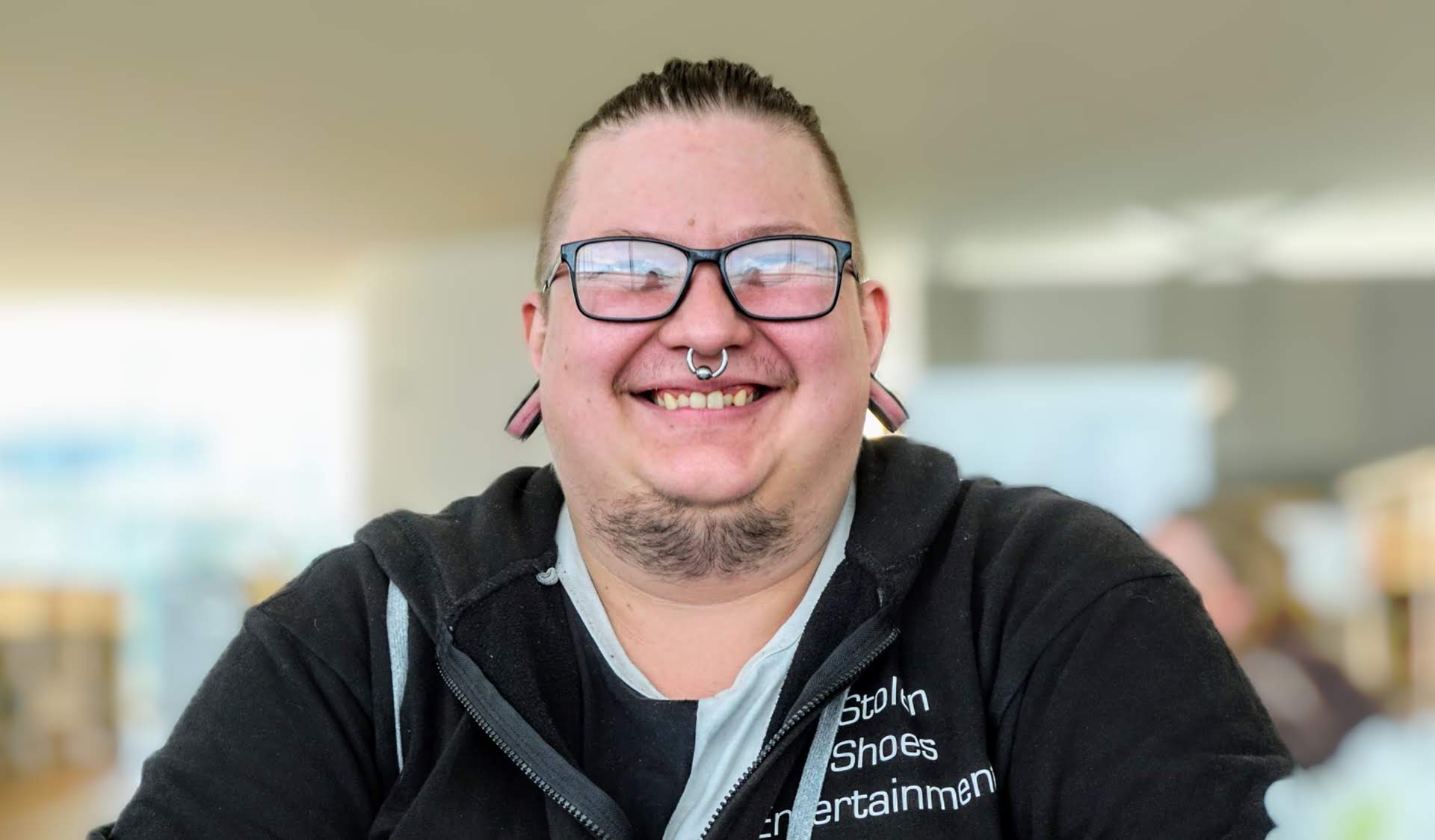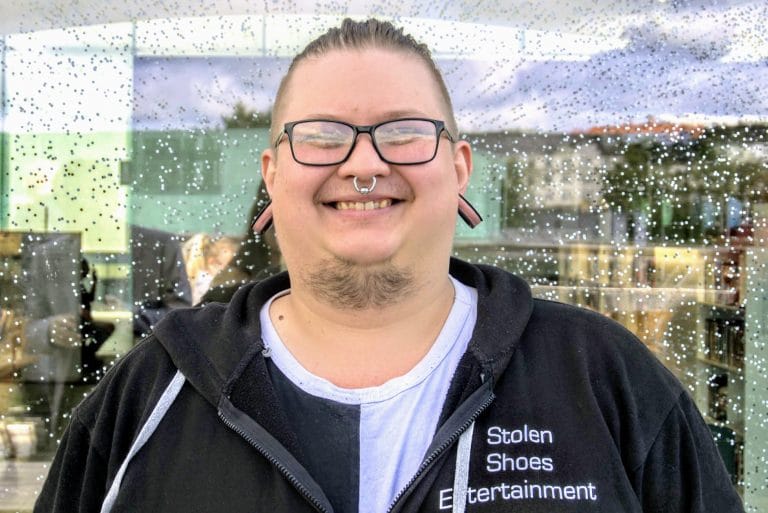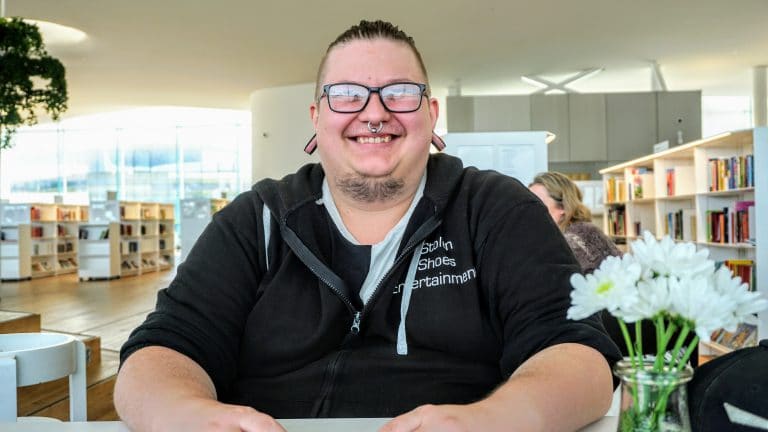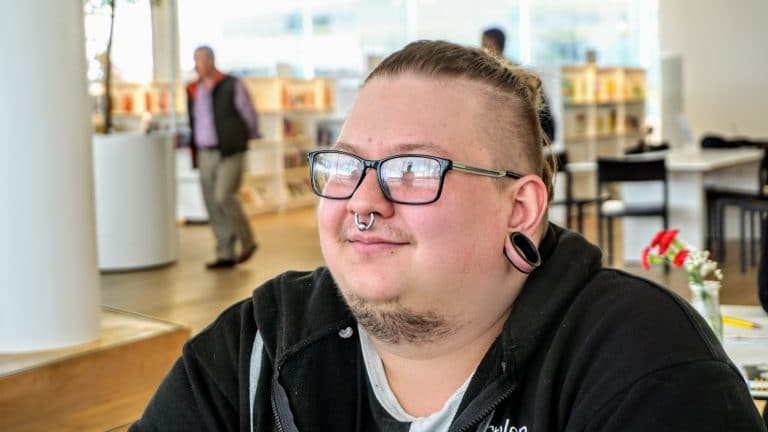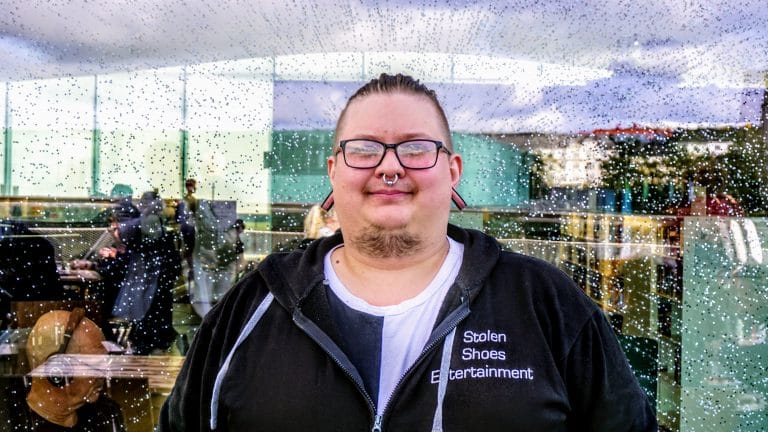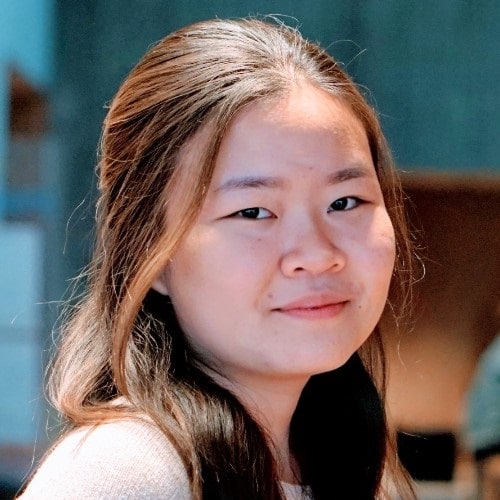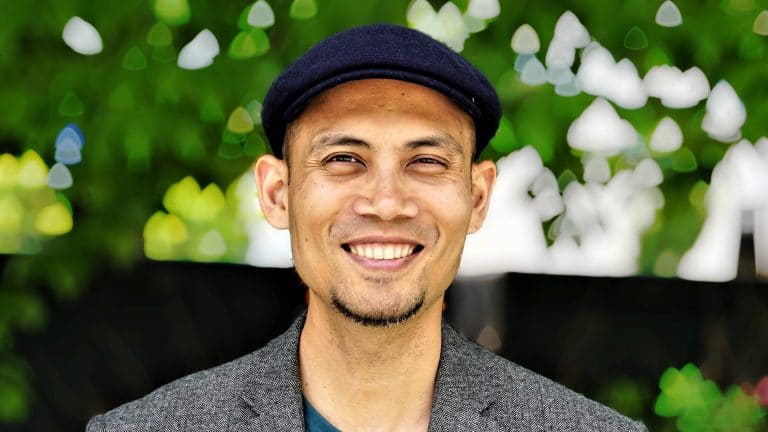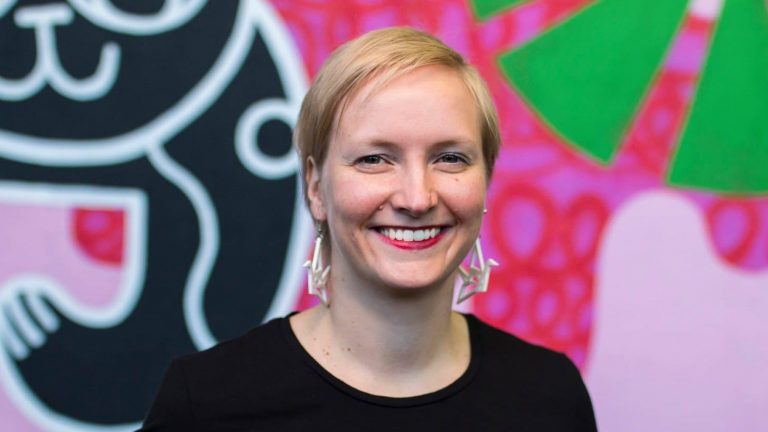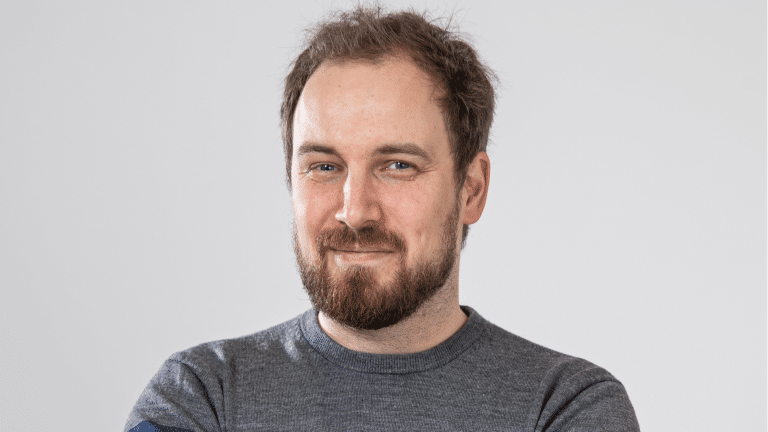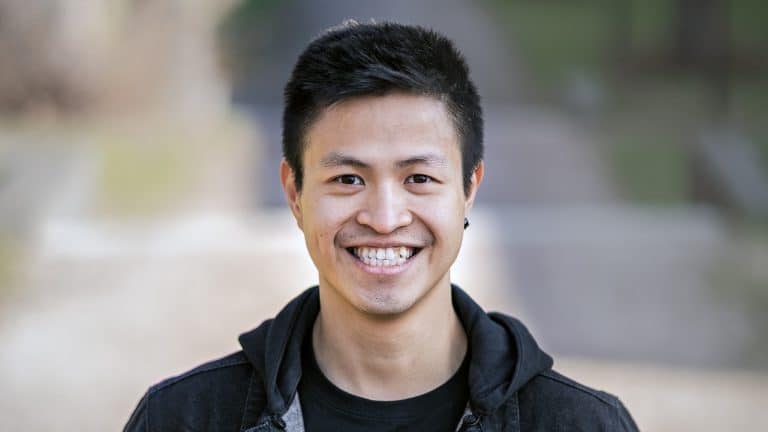I thought I need to be good at programming but it’s not the case
I have been playing video games from a very young age – since I could hold the console. I got interested in esports even before it was called esports. It was a hobby of mine. At the age of 15, I had a discussion with my group of friends about dreams. At that point, I already got the wish to run a game company with my friends. I kept that thought with me all the time. I had no clue where to start and who would be my teammates. It took us a long time with many tries and fails before we actually got here.
I always thought that in order to be in the gaming industry, I need to be good at programming but apparently, that’s not the case. After meeting people from game companies in Jyväskylä, I realized there are many more roles in this field than technical positions like coder or developer.
I never had time for school
At that point, I knew without a shadow of a doubt that I wanted to find a team and form a company to start producing games. I was taking courses for two years and a half. The study has never got anywhere. I was always being busy with other projects, feeling like I never had time for school.
At some point in 2016, we were working on organizing a gaming event called PowerLan. The idea was to create the biggest gaming tournament in Jyväskylä, competing with other big players like DreamHack, Assembly or Gamexpo. So on top of all the school assignments, we worked 15 hours a day. We had good ideas, great passion, and huge ambition but unfortunately, lack of skills and experience. So the project ended up pretty much like a disaster.
The worst failure in my career is the best thing that has ever happened to me
Organizing that gaming event was the worst experience throughout my career but at the same time – the best thing that has ever happened to me. Because it made me much tougher. Now if the same thing happens, I do not break down easily.
The whole budget for that was around 20,000€. Most of it was granted from the city and university. We also invested all the money into the event, although as students we did not have much. Things went wrong when it came to ticket selling and taxation. We did not sell as many tickets as expected nor calculate correctly the tax. The project turned out to be a huge loss in terms of finance. However, it was a big learning lesson that I never regret.
Treating people with kindness will only lead to good things
Above all, the event gave me all the connections needed to get my career started. To be honest, the connections are much more valuable than short-term earnings. Meeting local professionals in the game industry was an open door for me to many business opportunities and collaborations. One thing I believe in is that if you treat people with kindness and offer help when possible, it will lead to only good things.
“Hope for the best but prepare for the worst”
My final key takeaways from that gaming event were – know your number and keep down-to-earth predictions on the sales. This applies not only to event production but also in business. Don’t be so much optimistic about the incoming sales, make all the financial decisions based on the most realistic number you have, not the most optimal one! Like they say “Hope for the best but prepare for the worst”.
Getting a job is hard, so I needed to start something of my own
In Jyväskylä, there are just a few game companies, not so many of them are in need of hiring people. The biggest one at that time they had less than ten employees. Labor demand was not so high, in other words, the job market in the gaming industry was pretty loose. There are tons of companies, especially startups, that don’t have much budget. And there are big players like Rovio, Supercell, etc. whose only interest is hiring the best people. As a young person without a proven track record and formal education, I felt like my chance of getting employed was roughly zero. So I had to start something of my own.
To make successful games requires creativity, discipline, and business strategy
There is a six-month-long program called “Game Lab”. It’s originally from Oulu and has been benefiting the gaming scene in Jyväskylä a lot. Participants will form a team of three to seven, being given all the support needed like facilities and premises, to produce games together. I participated, our team made a game that was a horrible failure. It was a VR game for phones. The idea came just because we happened to have a couple of hundred Google cardboard glasses. So we tried to make something out of it. But none of us had expertise in VR, so we failed pretty hard.
After Game Lab, I made a bunch of new connections with other fellows who had the same situations – making failed games. I think it’s something predictable when young people are put into the same group with a lot of freedom but not enough guidance. To make a successful game, I think besides creativity we also need discipline and strategy in terms of business.
I knew Samuli, Samuli knew Simo, Simo knew Tero – we had four people on board
Anyways, the good thing was that I got to know people and some of them did want to have their own game company. One day, at the end of a party with my co-founder Samuli, we took a walk around the city and had a deep talk about games, failures, and the idea of running a business. The next day, I sent Samuli a message telling him, “Let’s give this one more try!”. So I knew Samuli, Samuli knew Simo, Simo knew Tero – we then had four people on board as co-founders for our own game company. That’s how everything got started two years ago!
The company name – Stolen Shoes – does not have any meaning behind it. It’s totally about an accident that one of our co-founders took someone else’s shoes by mistake at a party. Nobody in the team even remembers who suggested that name. It was quite spontaneous but in a way, sounds very interesting. I think it’s a good fit representing our team spirit and characteristics.
We lack capital
We are a truly technical-focused team, each of us has a supplementary skillset. I am the only one who also has an interest in business – monetizing and marketing our games to the users. One of the biggest challenges for our business’ was the lack of capital. As a young startup, we did not have anything to show, which made it hard to receive investment or funding.
To make the situation worse, we decided to provide outsourcing services for other companies instead of focusing on developing our own games. It was not a good move since we were distracted from our business’ vision and mission, which made it even more difficult for us to receive funding. We should have concentrated on spending our effort to create and enhance our own strengths as well as a competitive advantage. However, we had to do it solely for the sake of generating enough revenue for the business to survive.
“Nobody would have an interest in your project, if you would have asked for a couple of millions, then we could talk”
One thing we learned about getting investment is to be ambitious. Your scale and number of the project must be big and attractive enough to draw investors’ and the public’s attention. It’s worth doing research about the average amount of investment for business ideas or projects in your industry. Then make your plan accordingly, also make sure to prepare enough resources to actually execute it. One time I was talking with an acquaintance from the gaming industry (who was working for a publisher) about our intention to apply for 500K funding. “Nobody would have an interest in your project,” He told me frankly. “But if you would have asked for a couple of millions, then we could talk.”
“A master’s degree will not lead you anywhere”
Personally, I think the game industry is so competitive at the moment that there is not much room for innovating as mobile apps or software development. In these other industries, you can find a whole new niche to be creative and freely grow your idea then get small funding for it since you are the only one who does it. It’s just a totally different story with the game industry, there is a preference for enormous, big-scale, game-changing projects.
The degree alone will not get you hired anywhere. You will need to show exceptional skills and be a good team worker to land a job from the games industry. For youngsters or gaming enthusiasts, there are a couple of options to start your career paths:
- Accelerator program
- University programs/ bootcamp
- The Hive (coding school in Helsinki opened by Supercell)
- Set up co-operatives (Osuuskunta). Co-operative is a good option for people in Finland to try entrepreneurship for the first time.
There is no rival, just friends in the Finnish gaming industry
I’m personally very happy with the business environment we have. It’s just fantastic the way big and small companies help each other out by sharing knowledge whenever possible. We have IGDA Finland – the local Finnish chapter of IGDA (the International Game Developers Association) – with a mission to advance careers and improve the lives of game developers. There are frequent events and programs organized mainly for know-how sharing and connecting like-minded people. There is no rival, just friends in the Finnish gaming industry. I think this is something other countries are jealous of Finland about!
One problem we have here is lacking highly-skilled professionals, especially in small cities. I think some companies are working with city managers to build community infrastructure. Making games is a complicated process in a way that you have to transform ideas into products – like what artists do. Also, it always requires strong teamwork. The experience in some cases really matters because it helps to build things faster. One thing about building software or making games is that, like construction, you need to build the foundation with caution. Otherwise, when a problem pops up, you will need to take the whole thing down and build everything again from scratch. You don’t want it, because it’s super expensive.
The bond among all company members improves everyone’s productivity
The typical day at our company is different depending on at which stage of building the game we are in. Every week we have a playing session that is scheduled formally. We want our people to be there, have quality time together and last but not least, exchange feedback. We also prepare Monday Breakfast to kick off the week. One of our founders would prepare some food for everyone. Eating together and talking about what happened last week is extremely helpful. The bond among all company members gets strengthened, which improves everyone’s productivity and performance.
One main task of mine is to make sure others have no problem at work. Spending time with my people is my number-one priority – It’s my working mantra, although it takes quite a lot of my time. But even in the very busy moments, if someone comes and asks me whether or not I have time, my answer is always “yes”. I believe when somebody comes to you, that means they are really in need of your help, so just 10 minutes would be appreciated. Most of the time I would be around helping people with their problems.
Spend time more wisely on the priorities
I think to be an entrepreneur, it’s really important to know about stress and time management. I have two phones, one for work, and one for other things. When I need time for myself, nobody can reach me for issues related to work. I put everything on my calendar, even the most basic activities like brushing teeth. At some points, I have my whole day divided into 15-minute slots. I also categorize tasks into four groups: not urgent, very urgent, not important, and very important. That way I can spend time more wisely on the priorities.
Don’t focus on who is right and who is wrong
After many years with miserable failures, I realized I must enrich my knowledge, learn from other’s mistakes and experiences instead of doing it all by myself. So I read a lot of books then share, discuss what I’ve learned with others, and try to apply it to real life. One particular powerful lesson is that we try to be efficient in debates. We don’t focus on who is right and who is wrong but what is best for us to solve the problem or achieve our goal.
I think the key here is to trust others. When I accept that everyone has a different background and working experience, I’m more open to their opinions and perspectives, even though I personally don’t really understand the idea. I also learned a lot from fellow entrepreneurs. For years I’ve been a big fan of Ilkka Paananen – CEO of Supercell, particularly, his leadership attitude. I watched his speeches on Youtube. My favorite is his saying about decisions made by a team is always better than that of himself. In other words, the role of the leader is to support the team.
Turn your hobby into a profession
I know this is not easy for everyone but I truly believe you can turn your hobby into a profession. It takes time, a lot of time, but it is worth the try. The hobby is what you enjoy doing and cannot imagine somebody pays you to do it. But it only takes a few more twists (adding more value to others while doing it, training yourself to be the best in that field and sell your expertise or help others to improve their skills) until it can earn you a living.
Take all the chances possible to go meet people
Many of my connections have a great interest in participating in events, meetups, charity programs, social projects, etc. I do the same. I say yes to those kinds of offers almost all the time. I believe that even though there could be no monetary or business benefits, at least you always have a chance to meet new people. And people are where opportunities come from. Especially for such a small community of 3,000 people here in the game industry, it’s highly useful to know people. Unlike other industries, there is not much hierarchy. People are friendly and respectful no matter your level of social status, as long as you have a passion for games. So don’t spend too much time considering, take all the chances possible to go meet people!
I work harder to prove to people that they were wrong
I don’t think physical appearance should have any impact on your professional career. From my experience, at least in this industry, nobody really cares about the way you look. Since moving to Jyväskylä, I think I will never work for someone else again. It really drives me to be able to do things my way. If my appearance is a problem for someone, it just makes me push harder to prove them wrong.
The same thing if people have doubts about me or look down on me. I turn it into motivation and power to perform much better. My teacher at school used to laugh at me when I was saying I want to become an entrepreneur and produce my own games. He lectured me that the percentage of people who could succeed in making games is very small and I had better stop dreaming and do something else more practical. I think I need to thank him since his “demotivation” somehow brought me here today.

